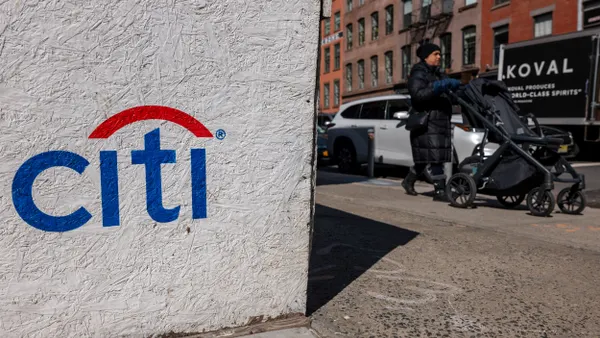Dive Brief:
- Capital One is among seven companies the Equal Employment Opportunity Commission (EEOC) said violated federal law by using Facebook ads targeted to older workers, according to July letters released last week by Communication Workers of America (CWA), a labor union.
- The ads ran between March and November 2017, the letters said. As part of a nearly $5 million settlement with the American Civil Liberties Union (ACLU) and other groups, Facebook in March said it would use a separate portal for ads related to housing, employment or credit-related products. That portal would not allow those categories of ads to target users by age, gender, race, religion or postal code.
- Capital One's reputation has suffered since a July breach exposed the personal information of about 106 million customers. The bank and the six other accused companies have denied any wrongdoing, the letters said.
Dive Insight:
Investment adviser Edward Jones and rental car company Enterprise are also among the firms to receive letters from the EEOC. Three of the seven companies received additional rulings on alleged discrimination against women. Capital One, Edward Jones and Enterprise were not among them.
The agency found "reasonable cause" that Capital One "advertised on Facebook, with national exposure, and when doing so … used language to limit the age of individuals who were able to view the advertisement," the letter said.
If Capital One or the other companies decline to discuss the rulings or reach an "acceptable" settlement, the EEOC or the plaintiffs could eventually file lawsuits in federal court, Bloomberg reported.
Facebook is not accused of impropriety in the letters, but Sheryl Sandberg, the social network's chief operations officer, wrote in a blog post in March that "getting this right is deeply important to me and all of us at Facebook because inclusivity is a core value for our company," according to CNN.
The rulings came in response to complaints filed by the CWA and several individuals represented by the ACLU and law firm Outten & Golden.
"The EEOC's rulings should send employers a strong message that they can’t unfairly lock workers out of opportunities based on their gender or age," Sara Steffens, CWA's secretary-treasurer, said in a press release published on the ACLU's website.
"This historic decision shows that our civil rights laws apply to digital advertising and recruiting," Peter Romer-Friedman, counsel at Outten & Golden, said in the ACLU release. "It underscores that the internet is not a civil rights free zone."













